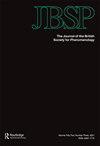Arendt, Améry, and the Phenomenology of Evil
IF 1.1
2区 哲学
0 PHILOSOPHY
JOURNAL OF THE BRITISH SOCIETY FOR PHENOMENOLOGY
Pub Date : 2022-07-20
DOI:10.1080/00071773.2022.2101134
引用次数: 0
Abstract
ABSTRACT Contemporary accounts of evil attempt to identify features or properties that transform an act of wrongdoing into an act of evil. What is missing from the discussion, however, is a phenomenology of evil that engages with the standpoint of the subject that undergoes evil. This paper discusses basic themes for a phenomenology of evil through a critical comparison between Hannah Arendt and Jean Améry’s respective conceptions of evil. Central for this discussion is a claim Arendt and Améry share: evil destroys subjectivity and undermines trust in the world. Furthermore, both argue that the perpetrators of evil inhabit a distorted moral framework. They differ, however, insofar as Améry foregrounds the subject that undergoes evil, a standpoint that remains tacit in Arendt’s account. Recounting his torture by the Gestapo, Améry reveals how embodied subjects experiences evil and how it is in light of these experiences that perpetrators of evil should be understood.阿伦特、梅里与邪恶现象学
当代对邪恶的描述试图识别将不法行为转化为邪恶行为的特征或特性。然而,讨论中缺少的是一种与经历邪恶的主体的立场相联系的邪恶现象学。本文通过对汉娜·阿伦特和让·阿梅里各自的邪恶概念的批判性比较,探讨了邪恶现象学的基本主题。这场讨论的核心是阿伦特和Améry的共同主张:邪恶破坏了主体性,破坏了对世界的信任。此外,两人都认为,作恶者生活在一个扭曲的道德框架中。然而,他们的不同之处在于,Améry突出了经历邪恶的主体,这一观点在阿伦特的叙述中仍然是默认的。Améry回忆起盖世太保对他的折磨,揭示了被化身的主体是如何经历邪恶的,以及正是根据这些经历,才应该理解邪恶的肇事者。
本文章由计算机程序翻译,如有差异,请以英文原文为准。
求助全文
约1分钟内获得全文
求助全文

 求助内容:
求助内容: 应助结果提醒方式:
应助结果提醒方式:


